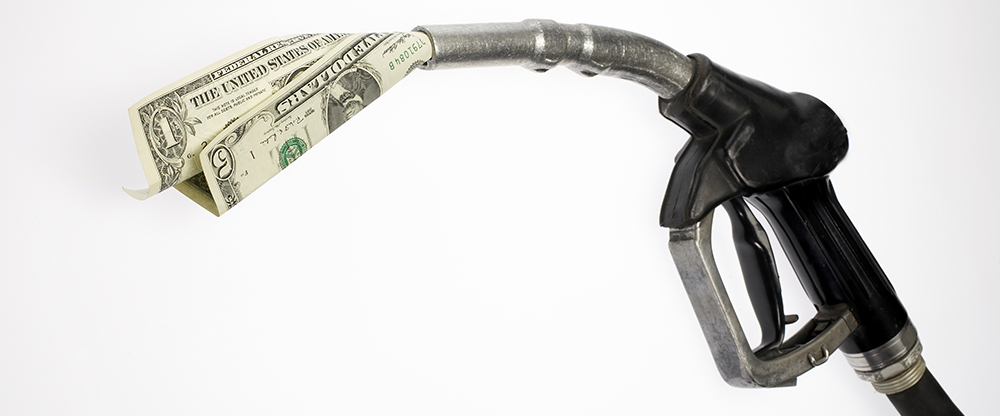Understanding President Trump’s Proposed Federal Gas Tax

Federal Gas Tax
A $0.25 Federal Gas Tax is Being Proposed as Part of Trillion Dollar Infrastructure Plan
In an effort to augment the White House’s $1.5 trillion infrastructure plan, this past February President Donald Trump reportedly introduced a federal tax on both gasoline and diesel to the tune of 25 cents per gallon. Current federal taxes are at 18.4 cents per gallon for retail gasoline and 24.4 cents per gallon for diesel. The federal gas tax rate was last adjusted in 1993 under former President Bill Clinton – nearly 25 years ago – and now many anti-tax conservatives and Republican lawmakers are vehemently opposed to the increased federal levy on fuel, stating that it will place a heavy tax burden upon middle class families and businesses. Such an increase would put the gasoline tax at 43.4 cents per gallon and the diesel tax at roughly 50 cents per gallon.
Funds Earmarked For Infrastructure Development
Since the federal gas tax has not been raised in over two decades, inflation has greatly affected how far the U.S. dollar reaches in terms of infrastructure maintenance and repairs. Not being indexed for inflation, which has increased by over 64% between 1993 and 2015, the fuel tax just doesn’t buy what it used to – or what it needs to. In January of 2018, the U.S. Chamber of Commerce initially introduced the idea of increasing the fuel levy by 25 cents per gallon, with claims that such a tax hike could potentially generate $394 billion during the course of a decade. Funds from the tax increase would be dedicated to the improvement of infrastructure for roads, highways and bridges. Besides the impact of inflation, the Federal Highway Trust Fund (HTF), a transportation fund within the U.S. that derives its money from the current federal fuel excise tax, is also affected by the continued development of electric vehicle technology (EV) and the introduction of more efficient gasoline and diesel engines. EV’s and more fuel economical vehicles mean less gasoline used and less fuel tax collected to fill the coffers of the HTF for continued infrastructure development and maintenance.
Anti-Tax Conservative Opposition
The idea of increasing the fuel excise tax has been tossed around for years, but President Trump began seriously considering the possibility in the Spring of 2017. Although White House representatives downplayed the reports of the President’s support of the tax, top economic adviser to the President, Gary Cohn later confirmed that a tax hike would be fairly considered during conversations around the development of an infrastructure plan said to be “the biggest and boldest infrastructure plan in the last half-century.” During a meeting of the minds this past February, many conservative political groups spoke out against any proposal to raising the fuel tax. They stated in a letter to lawmakers that, “Raising the gas tax is a bad idea. It will make the burden of government on families and businesses heavier. A higher gas tax means higher prices not just on gas, but on goods and services throughout the economy.”
The White House Response
In fleshing out the White House’s hefty, $1.5 trillion dollar infrastructure plan, it appears that all options are on the table. According to one White House official, “The gas tax has its pros and cons, and that’s why the president is leading a thoughtful discussion on the right way to solve our nation’s infrastructure problems.” The architect and strategist of President Trump’s infrastructure plan, DJ Gribbin recently announced his departure from the White House. His infrastructure proposal initially called for $200 billion in federal spending over the course of 10 years, “with the remaining funds coming from local governments and private investors,” believing that “cities and states and counties are eager to invest more in infrastructure.”
The Bottom Line
There is a fairly large discrepancy between $200 billion in federal funds and $1.5 trillion, so only time will tell how the President, along with Republicans and Democrats will decide on how best to combat our infrastructure concerns. One thing is for certain, maintenance of our mass transit system and the rebuilding of our nation’s highways, bridges, railways, tunnels, airports, waterways and seaports aren’t going to pay for themselves.
Contact an SCL Consultant Today
In a wide range of industrial sectors, SCL is committed to being the number one logistics and solutions provider for the products that protect and optimize the machines that keep our country moving. We pride ourselves on remaining at the forefront of industry trends and technological innovations, and as the market continues to evolve, we are committed to providing extensive product and industry knowledge and total performance satisfaction for our customers. For information on how we can assist your fleet in choosing the optimal products at a competitive price, contact an SCL consultant today.
